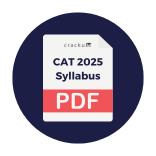The passage below is accompanied by a set of questions. Choose the best answer to each question.
Many people believe that truth conveys power. . . . Hence sticking with the truth is the best strategy for gaining power. Unfortunately, this is just a comforting myth. In fact, truth and power have a far more complicated relationship, because in human society, power means two very different things.
On the one hand, power means having the ability to manipulate objective realities: to hunt animals, to construct bridges, to cure diseases, to build atom bombs. This kind of power is closely tied to truth. If you believe a false physical theory, you won’t be able to build an atom bomb. On the other hand, power also means having the ability to manipulate human beliefs, thereby getting lots of people to cooperate effectively. Building atom bombs requires not just a good understanding of physics, but also the coordinated labor of millions of humans. Planet Earth was conquered by Homo sapiens rather than by chimpanzees or elephants, because we are the only mammals that can cooperate in very large numbers. And large-scale cooperation depends on believing common stories. But these stories need not be true. You can unite millions of people by making them believe in completely fictional stories about God, about race or about economics. The dual nature of power and truth results in the curious fact that we humans know many more truths than any other animal, but we also believe in much more nonsense. . . .
When it comes to uniting people around a common story, fiction actually enjoys three inherent advantages over the truth. First, whereas the truth is universal, fictions tend to be local. Consequently if we want to distinguish our tribe from foreigners, a fictional story will serve as a far better identity marker than a true story. . . . The second huge advantage of fiction over truth has to do with the handicap principle, which says that reliable signals must be costly to the signaler. Otherwise, they can easily be faked by cheaters. . . . If political loyalty is signaled by believing a true story, anyone can fake it. But believing ridiculous and outlandish stories exacts greater cost, and is therefore a better signal of loyalty. . . . Third, and most important, the truth is often painful and disturbing. Hence if you stick to unalloyed reality, few people will follow you. An American presidential candidate who tells the American public the truth, the whole truth and nothing but the truth about American history has a 100 percent guarantee of losing the elections. . . . An uncompromising adherence to the truth is an admirable spiritual practice, but it is not a winning political strategy. . . .
Even if we need to pay some price for deactivating our rational faculties, the advantages of increased social cohesion are often so big that fictional stories routinely triumph over the truth in human history. Scholars have known this for thousands of years, which is why scholars often had to decide whether they served the truth or social harmony. Should they aim to unite people by making sure everyone believes in the same fiction, or should they let people know the truth even at the price of disunity?
Regarding which one of the following quotes could we argue that the author overemphasises the importance of fiction?
Option A: The author here emphasizes that the choice between truth and social cohesion is a difficult one for scholars, as it means choosing between truth or uniting everyone using a common narrative. Here, the reach and influence of fiction created by that scholar has been overemphasized, and hence, is the answer.
Option B: There is no overemphasis in this option. Since humans have achieved these feats, and these feats do manipulate the objective reality around us, Option B can be eliminated.
Option C: Here too, the importance of fiction has not been overemphasized, but the importance of truth has been downplayed.
Option D: Option D presents a statement, which is unrelated to the emphasis being placed on the importance of myths.
Video Solution

Create a FREE account and get:
- All Quant CAT complete Formulas and shortcuts PDF
- 38+ CAT previous year papers with video solutions PDF
- 5000+ Topic-wise Previous year CAT Solved Questions for Free




